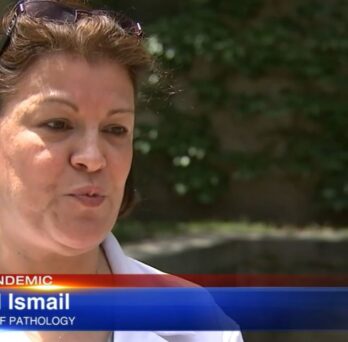Intro Heading link
We are a part of the Pathology Department at UI College of Medicine. Our lab focuses on immunology and the signaling pathways that lead to immunopathology following infections.
Research program focuses on Host-Microbial Interactions. Specifically, our lab is focused on understanding the pathogenic infection-induced sepsis caused by infection with intracellular bacteria such as Ehrlichia and SARS-COV2.
Understanding the pathogenesis of infection-induced tissue damage and sepsis. Specifically, her research team examines the innate and adaptive immunity and the role of NOD-like receptors (NLR) and autophagy in inflammation and sepsis caused by tick borne bacterial pathogens (e.g., Ehrlichia, Rickettsia). Dr. Ismail was among the first to define the contribution of NLRP3 inflammasome, NK cells, NKT cells, and CD8 T cells to the development of liver injury during Ehrlichia-induced sepsis (publications in Journal of Immunology, Nature, Infection and Immunity, American Journal of Pathology to name a few). Recently, her lab characterized the role of MYD88 and type I interferon (IFN-I) in host responses to intracellular tick-borne bacterial infection. Importantly, her group has found that Ehrlichia induces activation of mTORC1 [mechanistic target of rapamycin complex 1], to evade the immune system and cause systemic inflammatory responses (publication in Plos Pathogens). Her lab is currently analyzing the role of cell-specific HMGB1 (as downstream product of inflammasome activation) in the pathogenesis of liver damage during infection. Ismail’s Lab utilize several infection models, flow cytometry, primary cell isolation, and examines innate signaling pathways involved in microbial recognition.

